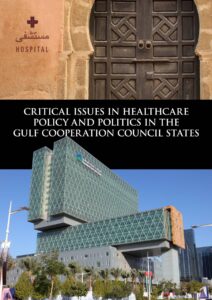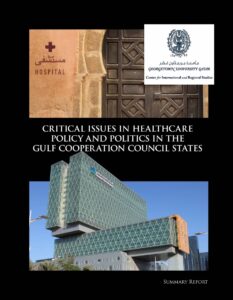Publications

Book

Ravinder Mamtani and Albert B. Lowenfels, eds., Critical Issues in Healthcare Policy and Politics in the Gulf Cooperation Council States (Washington: Georgetown University Press, 2018).
This is the first book to examine challenges in the healthcare sector in the six Gulf Cooperation Council (GCC) countries (Saudi Arabia, Oman, the United Arab Emirates, Qatar, Kuwait, and Bahrain). These countries experienced remarkably swift transformations from small fishing and pearling communities at the beginning of the twentieth century to wealthy petro-states today. Their healthcare systems, however, are only now beginning to catch up. Rapid changes to the population and lifestyles of the GCC states have completely changed—and challenged—the region’s health profile and infrastructure. While major successes in combating infectious diseases and improving standards of primary healthcare are reflected in key health indicators, new trends have developed; increasingly “lifestyle” or “wealthy country” diseases, such as diabetes, heart disease, and cancer, have replaced the old maladies. To meet these emerging healthcare needs, GCC states require highly trained and skilled healthcare workers, an environment that supports local training, state-of-the-art diagnostic laboratories and hospitals, research production and dissemination, and knowledge acquisition. They face shortages in most if not all of these areas. This book provides a comprehensive study of the rapidly changing health profile of the region, the existing conditions of healthcare systems, and the challenges posed to healthcare management across the six states of the GCC. Read more from Georgetown University Press.
Summary Report

“Critical Issues in Healthcare Policy and Politics in the GCC,” CIRS Summary Report no. 20 (Doha, Qatar: Center for International and Regional Studies, 2017).
The situation of the healthcare systems in the Gulf has become multi-tiered, primarily due to the lack of systematic population health need assessments, including short-term health solutions for low-skilled workers. Even though the Gulf region has attained significant social and economic achievements in a short span of time, healthcare policies are still centered more on curative health and not enough emphasis has been placed on protective and preventive measures. There is a lack of medical educational institutions in the Gulf, and the role of the private sector is in need of further study as there is no explanation as to why patients are shifting from public to private healthcare institutions.